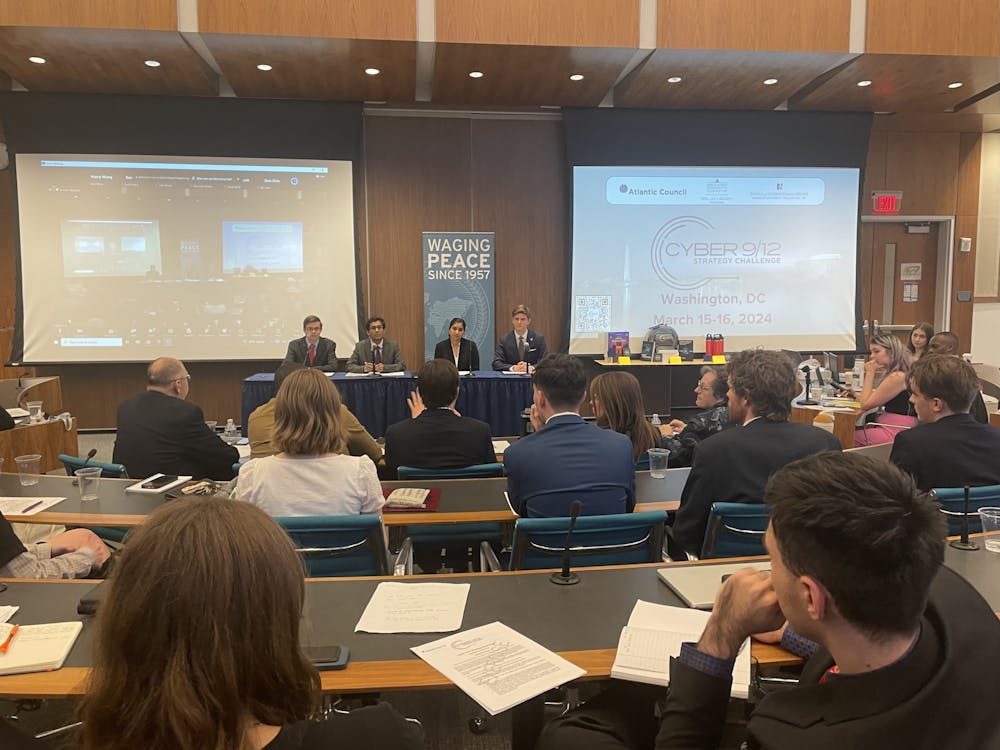Following their victory at the Atlantic Council’s National Cyber 9/12 Strategy Challenge, students in Duke Cyber reflected on their experiences and called for more investment in cybersecurity studies.
Duke Cyber sent two teams, the Duke Phishermen and Duke’s Defenders, to Washington, D.C. on March 15 for the annual cyber policy competition, which invites students to propose policy solutions to fictional cyber-related geopolitical conflicts. Duke Phishermen won first place, while Duke’s Defenders made it to the semi-final round.
Duke Cyber was founded five years ago to bolster cybertechnology, cybersecurity and cyber policy education at the University. Alongside attending competitions, the organization explores cyber issues through weekly expert briefings and provides its members with networking opportunities.
Duke Cyber President Shristi Sharma, a junior, believed winning regionals in Austin, Texas, followed by nationals places Duke in a comfortable spot as “the top school for cybersecurity nationally.” She attributes this to the club’s performance against other universities from “the military, … the Ivies and other top universities like Stanford.”
In order to develop Duke as a top school for cybersecurity, Sharma hopes that the University bolsters its cybersecurity master of engineering program by increasing its resources and providing more undergraduate courses.
“Hopefully these wins will help show that there's a lot of interest at Duke for cyber and that we can actually meet it through better resources,” she said.
Sophomore Peter Banyas, captain of the Cyber Policy track, believes that the club's success can be attributed to its passionate students who represent a diversity of majors.
Sharma similarly noted how the diversity of student interests enables the team to effectively think through scenarios and come up with more creative responses in competition.
“It's just amazing to me the creativity that the students show in their in-depth policy knowledge and moreover, their ability to articulate clearly, concisely and quickly the heart of the matter in solving our national security problem,” said Kim Kotlar, Duke Cyber mentor and adjunct associate professor in engineering graduate and professional programs.
Banyas noted that students do not necessarily join Duke Cyber just for the cyber aspect. Instead, he says they join to understand the intersection of technology and policy, work within the national security and public policy sectors and develop their public speaking skills.
Ultimately, Kotlar hopes Duke Cyber will be able to cater resources for interested students, and believes the recent success at Cyber 9/12 will exponentially strengthen the cybersecurity sphere amongst undergraduate students.
“All of the critical things that make our country run — our finances, our water supply, our energy supply, the ability to make phone calls or work on our computers — the foundational element of all of that is cyber,” she said.
Get The Chronicle straight to your inbox
Signup for our weekly newsletter. Cancel at any time.
Winston Qian is a Pratt first-year and a staff reporter for the news department.

